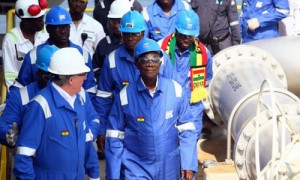 BMI View: The contest for Ghana’s December 2012 legislative and presidential elections is heating up. Although incumbent President John Atta Mills has secured his position as the National Democratic Congress’s presidential candidate, he does not have an easy ride ahead.
BMI View: The contest for Ghana’s December 2012 legislative and presidential elections is heating up. Although incumbent President John Atta Mills has secured his position as the National Democratic Congress’s presidential candidate, he does not have an easy ride ahead.
Incumbent President John Atta Mills has seen his position strengthened following a resounding victory in the contest to be the National Democratic Congress (NDC)’s presidential candidate in December 2012. Competition came from Nana Konadu Agyeman Rawlings – wife of ex-president, Jerry John Rawlings – but the competition proved insubstantial. Atta Mills won by a landslide, gaining 2,271 votes compared with Nana Konadir’s 90.
Commentary surrounding the vote indicates that the Friends of Nana Konadu Agyeman Rawlings (FONKAR) campaign was easily outpaced by its counterpart Get Atta Mills Endorsed (GAME). Mills apparently benefited from incumbency advantages, reportedly using state resources for transport and at times preventing Nana Konadu from meeting party officials. He also gained support and respect for his refusal to participate in the ‘mudslinging’ that escalated in the lead-up to the vote. Jerry John Rawlings reportedly described President Mills as unintelligent, irresponsible and ungroomed.
With his position now secure, Atta Mills will be focusing on December 2012. As is usually the case in Ghana, the elections – both legislative and presidential – will be a closely fought race. The NDC will benefit from incumbency advantages as well as perceptions that the economy has been generally well managed in recent years. Since 2009, when the party came to power, real GDP growth has been buoyant, the fiscal deficit has been reined in and inflation has stabilised. Furthermore, the oil economy has taken off, albeit with the legal and slowly.
Balanced against this, there may be a feeling among the electorate that it is time for a change and that the opposing New Patriotic Party should return to power. Moreover, the NDC is facing allegations of corruption as well as a range of concerns including the harsh treatment of street hawkers; the dilapidated state of the Accra-to-Kumasi road: delays in the payment of teachers’ salaries; and volatile commodity prices. Looking ahead, the management of oil revenues is likely to become a campaign issue: the NDC has sought to contain expectations about the extent of ‘trickle-down’ from the oil riches, but some disappointment is likely to be expressed among the electorate.
